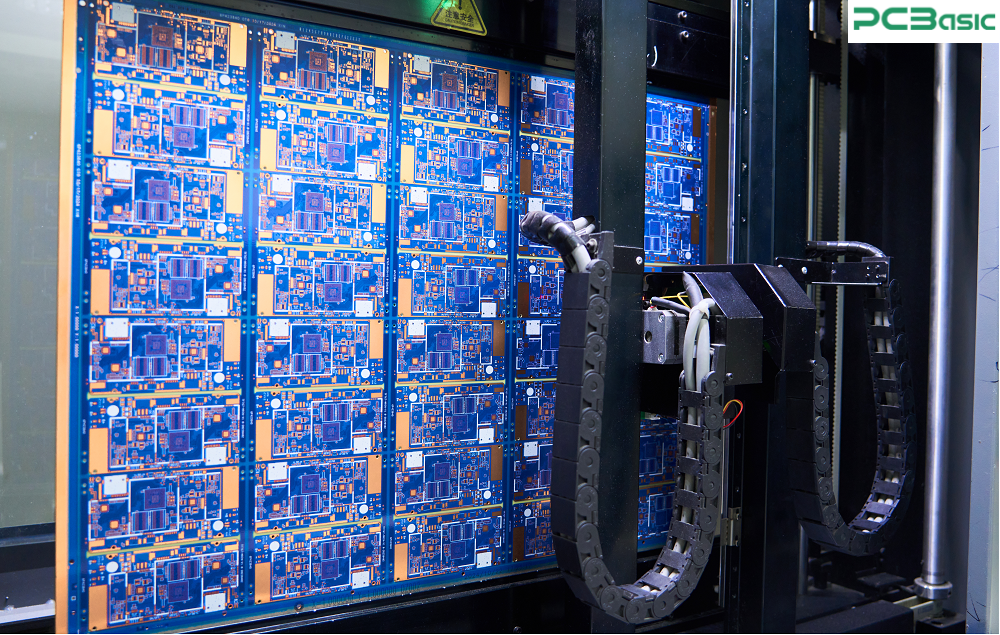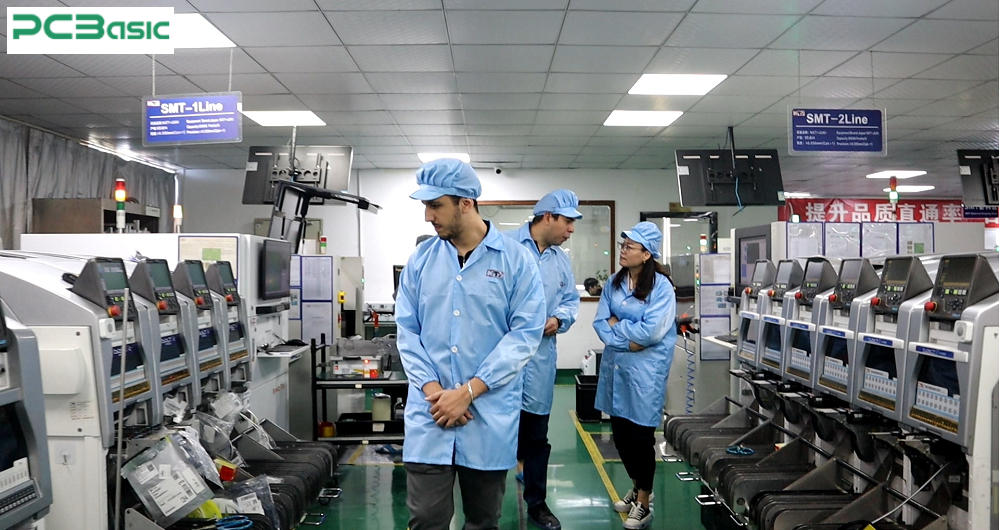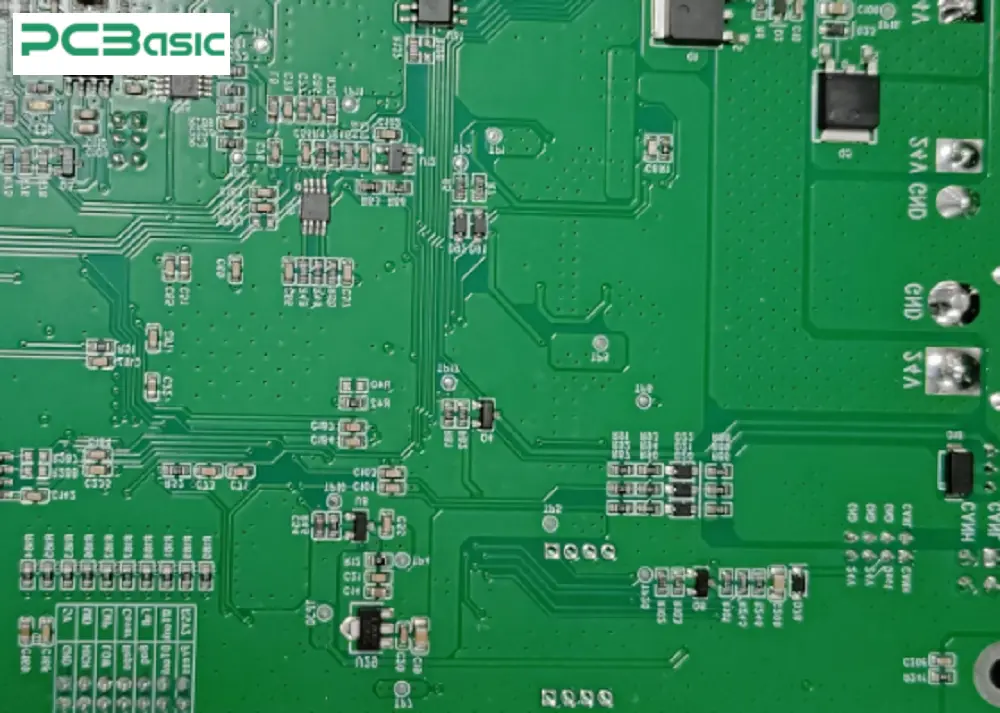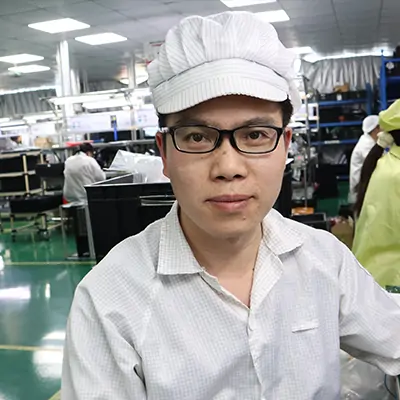Global high-mix volume high-speed PCBA manufacturer
9:00 -18:00, Mon. - Fri. (GMT+8)
9:00 -12:00, Sat. (GMT+8)
(Except Chinese public holidays)
Global high-mix volume high-speed PCBA manufacturer
9:00 -18:00, Mon. - Fri. (GMT+8)
9:00 -12:00, Sat. (GMT+8)
(Except Chinese public holidays)
HomePage > Blog > Knowledge Base > The Role of Advanced Assembly in Modern Electronics Manufacturing

In today’s rapidly evolving technological landscape, the demand for sophisticated electronics has reached unprecedented levels. From consumer gadgets to industrial machinery, the backbone of these devices lies in the efficient and precise manufacturing of circuit boards. Advanced assembly has emerged as a cornerstone of this process, enabling the production of complex and high-performance products. With the growing need for circuit board assembly services, particularly for emerging advanced products, innovations in advance PCB and printed circuit assembly services are transforming the global electronics industry. A key player in this transformation is China, where China advanced assembly PCB manufacturers are leading the charge with cutting-edge technologies and scalable solutions.
This article explores the significance of advanced assembly, its role in supporting emerging technologies, and how global trends—particularly those driven by China—are shaping the future of electronics manufacturing.
Circuit board assembly services are fundamental to modern electronics manufacturing. They involve assembling electronic components onto printed circuit boards (PCBs) to create functional devices that power everything from smartphones to industrial control systems.
Circuit board assembly services encompass a series of processes designed to turn raw PCBs into fully functional units. These processes include:
Sourcing components: Ensuring all necessary parts are available and meet quality standards.
Surface-mount technology (SMT) or through-hole mounting: Attaching components to the PCB either on its surface or through drilled holes.

Soldering: Securing components with solder paste using methods like reflow or wave soldering.
Testing and quality assurance: Ensuring the final product meets design specifications and performs reliably.
These services are essential for industries requiring precision and efficiency in their electronics, such as telecommunications, automotive, aerospace, and healthcare.
Circuit board assembly services provide several critical benefits:
Enhancing efficiency: Automated processes reduce production time while maintaining accuracy.
Ensuring quality: Rigorous testing protocols ensure reliability in even the most demanding applications.
Supporting scalability: These services cater to both low-volume prototypes and high-volume production runs.
For example, telecommunications companies rely on these services to produce equipment like routers and 5G base stations that require highly complex PCBs with flawless performance.
Emerging advanced products represent the next frontier in technology. These devices incorporate cutting-edge innovations such as artificial intelligence (AI), 5G connectivity, and Internet of Things (IoT) capabilities, all of which demand sophisticated manufacturing techniques.
Emerging advanced products are characterized by their:
High processing power: Needed for AI-driven applications like autonomous vehicles.
Compact designs: Achieved through miniaturized PCBs that maximize functionality within limited space.
Multi-functional integration: Combining sensors, processors, and communication modules on a single board.
Examples include wearable health monitors that track vital signs in real-time, autonomous vehicle sensors that process environmental data instantly, and smart home devices that connect seamlessly to IoT ecosystems.
Advanced assembly is crucial for producing emerging advanced products due to its ability to:
Enable miniaturization: High-density interconnect (HDI) designs allow more components to fit into smaller spaces.
Ensure precision: Techniques like ball grid array (BGA) placement guarantee accurate alignment of micro-components.
Enhance reliability: Advanced thermal management solutions prevent overheating in high-performance devices.
For instance, advanced assembly techniques are indispensable in manufacturing 5G base stations, which require efficient PCBs capable of handling massive data transmission rates while maintaining low latency.
Advance PCB technologies have revolutionized how modern electronics are designed and manufactured. These high-performance PCBs are tailored for applications requiring exceptional reliability and functionality.
Advance PCBs are printed circuit boards engineered for demanding applications. They often feature:
Multi-layer structures: Supporting complex circuits with over 10 layers.
Flexible or rigid-flex materials: Ideal for compact or foldable devices.
High-frequency capabilities: Essential for radio frequency (RF) applications like satellite communications.
Superior thermal management: Ensuring durability under extreme operating conditions.
Industries such as aerospace (avionics systems), automotive (electric vehicle control units), and healthcare (medical imaging systems) depend on advance PCBs for their critical operations.
Recent advancements have improved both the design and production of advance PCBs:
Material advancements: Polyimide is used for flexible PCBs, while ceramic substrates handle high-temperature environments.
Improved design tools: CAD software enables intricate layouts optimized for performance.
Automated processes: Robotics enhance precision in component placement and soldering.
These innovations allow manufacturers to meet stringent requirements while maintaining cost efficiency—a key factor in producing emerging advanced products at scale.

Printed circuit assembly services are integral to the global electronics supply chain. From prototyping to mass production, they ensure that electronic devices meet performance expectations across industries.
The demand for printed circuit assembly services is growing due to:
The proliferation of IoT devices across consumer and industrial markets.
The rise of electric vehicles requiring advanced battery management systems.
The growth of renewable energy systems needing efficient control units.
According to industry reports, this market is projected to exceed $70 billion by 2026 as technological advancements fuel consumer demand for smarter devices.
China has become a global leader in printed circuit assembly services thanks to:
Cost advantages: Competitive labor costs combined with economies of scale make Chinese manufacturers highly efficient.
Technological expertise: Investments in automation and R&D enable them to produce high-quality products at competitive prices.
Comprehensive supply chains: Proximity to component suppliers reduces lead times significantly.
Many multinational corporations rely on Chinese providers for both prototyping and large-scale production due to their ability to deliver reliable solutions quickly and affordably.
China’s dominance in advanced assembly PCB manufacturing highlights its pivotal role in shaping global electronics trends.
Chinese manufacturers have made significant strides in advanced assembly PCB technologies by adopting:
Automated optical inspection (AOI) systems that improve quality control.
Laser drilling techniques for creating microvias used in HDI boards.
AI-driven analytics integrated into production lines for better efficiency.
These advancements enable Chinese companies to produce highly complex PCBs that meet international standards across industries like telecommunications, automotive, and consumer electronics.
Chinese companies not only serve domestic markets but also export advanced assembly PCBs worldwide. Their ability to handle large-scale production while maintaining high quality has made them preferred partners for global tech giants like Apple and Huawei.
For example, Shenzhen-based manufacturers supply cutting-edge PCBs used in flagship smartphones, showcasing their ability to meet stringent design specifications at competitive costs.
The future of advanced assembly lies in innovation-driven practices that prioritize efficiency, sustainability, and customization.
Industry 4.0 principles are transforming advanced assembly through:
Robotics: Automating repetitive tasks increases productivity.
IoT: Real-time monitoring enhances process control.
AI: Predictive analytics optimize production schedules.
Smart factories enable faster turnaround times while accommodating higher levels of customization—a critical factor as consumer demands evolve.
Manufacturers are adopting eco-friendly practices such as:
Using recyclable materials
Reducing waste through lean manufacturing
Complying with RoHS regulations
Sustainability is becoming a key differentiator as customers increasingly value environmentally conscious brands.
Rapid prototyping tools like 3D printing allow manufacturers to adapt quickly to client-specific requirements without compromising quality or speed—essential for staying competitive in dynamic markets.
Advanced assembly has revolutionized electronics manufacturing by enabling the creation of sophisticated products that define modern life. From supporting emerging advanced products to driving innovations in advance PCB technologies, it plays a pivotal role across industries globally.
China’s leadership in printed circuit assembly services and its dominance in advanced assembly PCB manufacturing underscore its importance as a global powerhouse in this field. As smart manufacturing practices evolve and sustainability becomes a priority, businesses leveraging expertise from leaders like those in China can ensure success in delivering cutting-edge solutions tailored to market demands.

Assembly Enquiry
Instant Quote
Phone contact

+86-755-27218592
In addition, we've prepared a Help Center. We recommend checking it before reaching out, as your question and its answer may already be clearly explained there.
Wechat Support

In addition, we've prepared a Help Center. We recommend checking it before reaching out, as your question and its answer may already be clearly explained there.
WhatsApp Support

In addition, we've prepared a Help Center. We recommend checking it before reaching out, as your question and its answer may already be clearly explained there.
